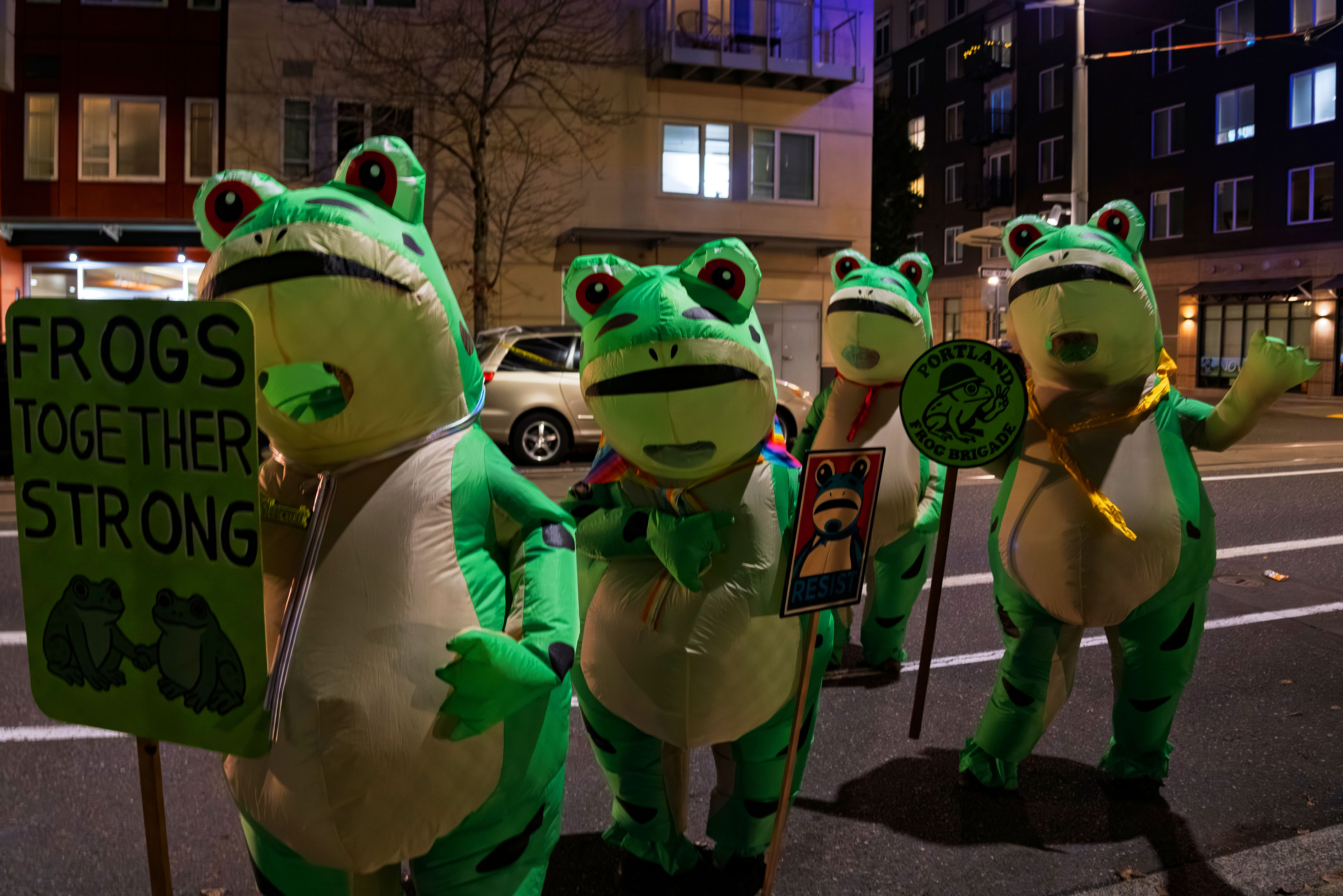Let’s Follow the Money in the Oregon Governor’s Race, Shall We?

Who wants to be Oregon’s next governor? Who doesn’t! From left: State Rep. Christine Drazan, Oregon Treasurer Tobias Read, Nick Kristof, State Sen. Betsy Johnson, and House Speaker Tina Kotek.
Here’s what the leading candidates in the Oregon governor’s race would like for the holidays: cash, and preferably lots of it.
After all, they’ll need it to compete in a race that’s widely expected to be the most expensive in Oregon history, outpacing even the $37 million spent between Gov. Kate Brown and Republican challenger Knute Buehler in 2018.
A spin through the campaign finance database maintained by the Oregon Secretary of State is always eye-opening, particularly given Oregon’s status as one of only a few states where the sky is the limit on campaign contributions, which are considered protected speech.
New contributions—and expenditures, though those won’t start to mount in earnest until a TV advertising blitz starts up closer to the May primary—are updated on the regular. And while State Sen. Betsy Johnson, the Democrat-turned-unaffiliated candidate mounting a third-party bid for the governorship, is still comfortably in the fundraising lead, others are piling up notable donations of their own.
To wit:
You’ve heard that former New York Times columnist, now Yamhill County orchard owner Nick Kristof pulled in sizable donations from the likes of Angelina Jolie and Melinda Gates. (Of all the donor lists, Kristof’s is the one with the most names listed in scarlet red, indicating that they are out-of-staters.) But his connections aren’t just among globally known philanthropists—the tech sector seems to like him too, judging by the $50,000 donations he recorded in mid-November from WeWork COO and Oregon native Miguel McKelvey and LinkedIn founder Reid Hoffman. There are center-left political stalwarts in there, too, from former US presidential candidate and longtime Missouri congressman Dick Gephardt, who donated $5,000 to Team Kristof, to New Seasons vet and2012 Portland mayoral candidate Eileen Brady, who kicked in $500. Kristof’s most notable November donation, however, came from the Oregon Labor Policy Network, which kicked in $75,000 and is funded by the state’s largest food and commercial workers’ union, who are perhaps not happy that their members were so low in the vaccine priority line under Gov. Kate Brown, despite being at work in person throughout the pandemic. Currently, Kristof has $1,400,538 in the bank, or nearly three times as much as any other Democratic candidate so far.
Money from the food and commercial workers’ union is a win for Kristof, but it could be a fairly rare one among union-backed groups, given that House Speaker Tina Kotek, a North Portland Democrat, is expected to reap most such donations. And that's already started: On November 29, she reported receiving $20,000 from the International Brotherhood of Electrical Workers’ political action committee. That comes after a $25,000 donation from the Iron Workers District Council earlier in the month. One of Kotek’s biggest donations to date is a little more of a head-scratcher: She got $40,000 from Mountain Rose Herbs, an organic botanical supplier based in Eugene. (Perhaps she is a regular at their Aroma Bar at Bridgeport Village? It’s on the way home from Salem.) Others who are on board with Kotek: Portland developer Homer Williams, who gave her $5,000 in late November, and Avamere Living, the parent company of one of the largest senior living chains in the state, which has weathered multiple COVID outbreaks during the pandemic; assisted living as an industry has received millions in emergency federal and state dollars since the start of the pandemic. Kotek has $492,290 in hand at this stage.
Don’t overlook State Treasurer Tobias Read, who seems to be a favorite among would-be government reformers. In mid-October, he clocked a $25,000 donation from California megadonor Bill Bloomfield, a disenchanted former Republican and cofounder of the “No Labels” movement who has campaigned for open primaries and public school reform. Another California-based megadonor on Team Read: Stephen Silberstein, a retired tech founder and supporter of the National Popular Vote movement who gave him $50,000. He has deep-pocketed supporters from inside Oregon, too, including Sid DeBoer, the chairman of Medford-based Lithia Motors, the country's third largest car sales retailer, who kicked in $2,500. Read has $462,396 in his account right now.
Of all the candidates, it’s Johnson who has landed the biggest contribution so far by an order of magnitude: $250,000 from the Papé Group, the Eugene-based equipment supplier to farming, logging, landscaping, and construction companies. Her donors tend to hail from name-on-the-wing-of-a-building Oregon families, like Peter Stott, the Portland-based investor who founded one of Oregon’s largest timber companies and has given her $100,000, and Gregory Goodman, whose family is one of the largest property owners in downtown Portland and who gave $50,000. Johnson’s currently sitting well atop the fundraising list with $2,373,685.55 on hand.
Johnson’s strong showing among old-money, timber-agriculture-finance donors could be a challenge for one of the newer entrants to the race, former House Minority Leader Christine Drazan, given that those donors traditionally lean Republican but are signing on with the unaffiliated Johnson instead. Drazan’s formal campaign launch is still a few weeks out, per an aide, and thus her fundraising push hasn’t really started in earnest. But even in just the past few months, the Republican has demonstrated pull in the pharmaceutical industry, including four-figure donations from Bayer, Merck, Johnson and Johnson, and Eli Lilly, and from GOP stalwart Charles Koch, whose Koch Industries gave her $5,000 back in early October. She currently has $163,749 on hand.
This is just a sampling—the 22 (!) candidates have formally filed to run so far, and these are just the ones pulling in some of the donations worthiest of bold-faced type. There are plenty of others worth watching, including Yamhill County Commissioner/farmer Casey Kulla, who is seeing donations from winery owners in the surrounding AVAs (that's American Viticultural Areas, for the non-oenophiles among us), Sandy Mayor Stan Pulliam, who has raised his profile by pushing back against statewide COVID-19 restrictions and has a cool $235,812 on hand, and Bud Pierce, the Salem oncologist who was the Republican gubernatorial nominee in 2016 and self-funded his own campaign to the tune of $1.6 million. This time around, he has $153,935 on hand.




